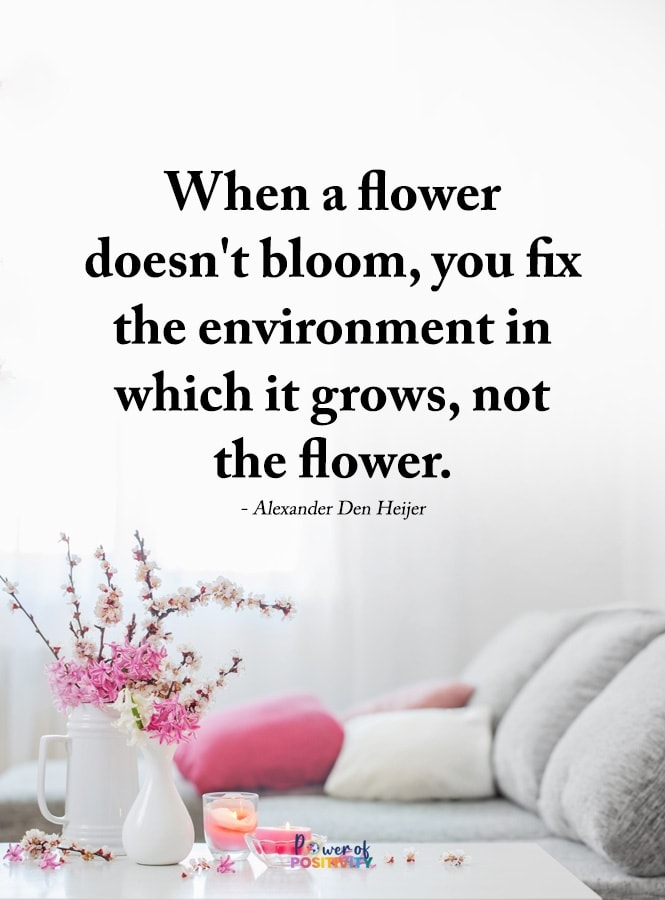Have you ever wondered why staying quiet can feel harder than speaking up? Sometimes, holding your tongue takes far more strength than letting words fly. Being quiet isn’t about weakness or fear; it’s about making a deliberate choice to step back, reflect, and show control when it matters most.
In a heated moment or when emotions run high, silence can stop arguments before they start. It can prevent misunderstandings, build trust, and even strengthen relationships. Choosing to stay quiet can also protect your peace and allow you to truly listen—something that’s rare but deeply valued.
Being quiet doesn’t mean you don’t have something to say. It means you know when your words will help and when they might hurt. The strength in silence lies in knowing that saying less often says more. Could embracing quiet be one of the most powerful habits you adopt?
The Power of Silence
Have you ever noticed how being quiet can completely change the energy of a moment? Lao Tzu once said, “Silence is a source of great strength,” and those words couldn’t be more true. Sometimes, silence says more than any speech ever could.
Being quiet gives you space to think, to feel, and to process what’s happening around you. It helps you slow down when emotions are running high and lets you reflect before acting. Whether it’s calming yourself during an argument or deciding the right words to say in a tough situation, silence gives you time to make better choices.
Silence also helps you listen—not just to others but to yourself. When you’re quiet, you notice things you might otherwise miss: someone’s feelings, a new perspective, or even your own inner thoughts. In those moments, being quiet isn’t about staying silent forever; it’s about waiting for the right time to speak with purpose and clarity.
In relationships, silence can heal. It shows respect for others’ opinions and gives conversations room to grow. It also shows incredible strength—choosing not to react when you could easily say something impulsive takes control and maturity.
There are moments when silence becomes your greatest ally. It doesn’t mean you’re weak or passive. It means you’re thoughtful and intentional, saving your energy for what truly matters. Could being quiet be the key to handling life’s toughest moments? Let’s explore the times when silence is truly golden.
10 Moments When Silence Demonstrates True Strength
Sometimes, being quiet is the most powerful way to respond—here are ten moments where silence can show just how strong you really are.
1. When You Lack the Facts
It’s tempting to jump into a conversation when opinions are flying around, but what happens when you don’t know the full story? Speaking without all the facts can lead to misinformation, harm your credibility, and even create unnecessary conflict. For instance, jumping into a debate about a topic you only half understand might leave others questioning your judgment. Worse, you might unintentionally mislead someone else.
Choosing to stay quiet in these situations shows wisdom and maturity. Admitting to yourself, even silently, that you don’t have enough information to contribute can feel humbling, but it earns respect. Listening instead of talking allows you to learn and gather the knowledge you need. When you do speak, your words will carry weight because people know you don’t talk just to fill the silence. In a world where everyone has an opinion, the quiet ones often stand out for their thoughtfulness and reliability.
2. When Words Could Cause Hurt
We’ve all said things we regret, especially in moments of anger or frustration. Maybe it was during a heated argument with a friend, a partner, or a family member. Words spoken in those moments often hit the hardest, leaving wounds that take time to heal. The truth is, some things, once said, can’t be unsaid.
Being quiet in these moments takes incredible strength. It means pausing when emotions are high and choosing not to let frustration control your actions. Silence allows you to take a step back, think about the impact of your words, and decide whether they’re worth saying. Sometimes, the best response is no response at all. This approach not only protects your relationships but also helps you avoid the regret of hurting someone you care about. In the long run, choosing silence can strengthen bonds and show that you value kindness over winning an argument.
3. When You Feel Ashamed or Regretful
Have you ever found yourself in a situation where you said something and immediately wished you could take it back? Maybe you made a joke that didn’t land or gave an opinion that wasn’t as informed as you thought. In those moments, speaking further can sometimes dig the hole even deeper.
Choosing silence in these situations demonstrates self-awareness and self-control. Instead of rushing to explain or defend yourself, staying quiet allows you to reflect on what went wrong. Silence gives you the time to process your emotions and think about how to make amends, if necessary. It’s not about avoiding responsibility; it’s about ensuring that your next words help the situation rather than make it worse. This kind of quiet strength shows others that you’re thoughtful and willing to grow from your mistakes.
4. When It’s Not Your Place to Speak
Not every conversation needs your input, and recognizing when it’s better to listen is a skill that many people overlook. Imagine being in a meeting where a colleague is sharing their idea, or a friend is opening up about a personal struggle. Jumping in with your thoughts might shift the focus away from them, even if you mean well.
Silence in these moments is a sign of respect. It shows that you value what the other person has to say and that you’re willing to give them the space to express themselves fully. Active listening—truly focusing on the person speaking—can lead to deeper understanding and stronger relationships. By being quiet, you’re not just hearing words; you’re showing that you care. Sometimes, the most supportive thing you can do is simply be there in silence.
5. When Silence Says More Than Words
There are times when words simply aren’t enough. Think about moments of shared grief, solidarity, or quiet protest. Silence in these instances becomes a powerful statement. For example, standing silently with someone during a difficult time can communicate empathy and support without the need for explanations or platitudes.
Silence can also be a way to take a stand. In peaceful protests, a lack of words can speak volumes about strength and resolve. It shows that you don’t need to argue or shout to make your presence felt. Whether it’s about showing compassion or making a statement, silence often carries a weight that words can’t match. It’s a reminder that sometimes, less truly is more.

6. When You’re Being Provoked
Dealing with someone who is trying to get under your skin can be incredibly frustrating. Whether it’s a rude comment, an unnecessary critique, or outright taunting, it’s easy to feel the urge to snap back. However, responding often gives the provocateur exactly what they want: your attention and energy.
Choosing silence in these moments isn’t about letting them win; it’s about maintaining your dignity and self-control. By not reacting, you’re showing that their words or actions don’t have power over you. This kind of quiet strength can be disarming to the other person and protect your peace of mind. Sometimes, the best way to handle negativity is to rise above it with silence.
7. When You’re Working on Personal Growth
Personal growth often requires looking inward and making changes to habits or behaviors that no longer serve you. Whether it’s reacting impulsively, speaking negatively, or interrupting others, changing these patterns takes time and effort. Silence can be a crucial part of this process.
By staying quiet, you give yourself the opportunity to reflect on your actions and thoughts. You become more aware of the moments when you’d normally speak without thinking and can practice responding differently. This kind of mindfulness allows you to break old habits and replace them with healthier ones. Being quiet during this journey isn’t about shutting yourself off; it’s about creating space for growth and self-improvement.
8. When Emotions Are Overwhelming
When emotions like anger, sadness, or frustration take over, it’s easy to say things you don’t mean. In these moments, silence can be your best friend. Instead of reacting immediately, staying quiet gives you the time to process what you’re feeling and think about the best way to handle the situation.
Silence isn’t avoidance; it’s a way to protect yourself and others from the fallout of high emotions. It’s about recognizing that words spoken in the heat of the moment often do more harm than good. By choosing to pause and reflect, you’re showing strength and emotional intelligence. This kind of self-control can prevent conflicts and help you navigate difficult situations with grace.
9. When Time Could Be Better Spent
How often do we fill the silence with small talk or meaningless chatter? While there’s nothing wrong with casual conversation, there are times when staying quiet can be more productive. For example, instead of engaging in idle gossip, you could use that time to focus on a project, spend time with loved ones, or simply recharge your energy.
Silence allows you to prioritize what matters most. It helps you focus on tasks that align with your goals and values, rather than getting distracted by unnecessary noise. Choosing when to speak and when to stay quiet is a way of taking control of your time and using it wisely.
10. When Gossip or Criticism Hurts Others
Talking behind someone’s back or criticizing them unnecessarily might feel satisfying in the moment, but it often leads to regret and damaged relationships. Gossip erodes trust, and harsh words can leave lasting scars.
Being quiet in these moments shows integrity and respect. Instead of joining in on negativity, you’re choosing to rise above it. Silence sends a message that you won’t participate in tearing others down. It’s a simple yet powerful way to lead by example and build a reputation for fairness and kindness. Sometimes, the best way to show strength is by choosing not to speak at all.
Why Silence Is Not Weakness
Many people think being quiet means you’re unsure, afraid, or even weak. But the truth is, silence often takes more courage than speaking up. Choosing to stay quiet is a deliberate act of wisdom and strength. It shows you’re in control of your emotions and that you’re not ruled by the need to fill every moment with noise.
Being quiet allows you to process your thoughts, reflect on the situation, and respond with clarity when the time is right. It’s a way of showing emotional intelligence—you understand the power of holding back when it’s not necessary to speak. This level of self-control can prevent misunderstandings, preserve relationships, and even enhance your credibility.
Silence also demonstrates grace. In arguments, for example, it takes more strength to hold your tongue than to lash out. It’s a choice to protect peace over proving a point. When you’re quiet, you’re not giving up—you’re standing firm in your values and showing others the depth of your character. So, the next time someone sees your silence as weakness, remember: it’s actually one of your greatest strengths.
Final Thoughts on Embracing Silence
Silence isn’t just about staying quiet—it’s about showing strength, wisdom, and self-control. In a noisy world, being quiet can make all the difference. It allows you to listen, reflect, and act with purpose instead of reacting impulsively. Whether you’re holding back hurtful words, avoiding unnecessary gossip, or simply taking time to think, silence shows that you value thoughtfulness over noise.
Next time you feel the urge to speak, pause for a moment. Ask yourself: will these words help, or will they hurt? Could silence be the stronger choice? Embracing quiet doesn’t mean you’re weak—it means you’re in control. And in today’s fast-paced, loud world, that kind of strength stands out more than ever.














